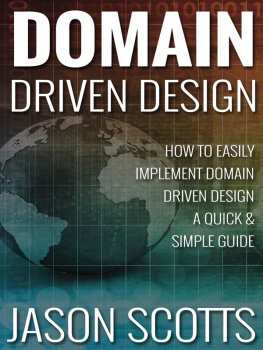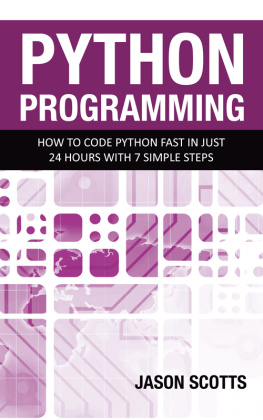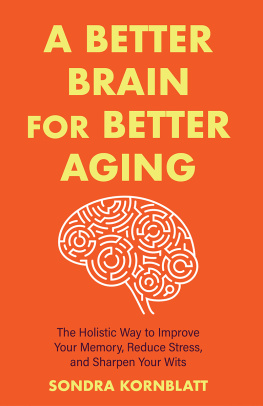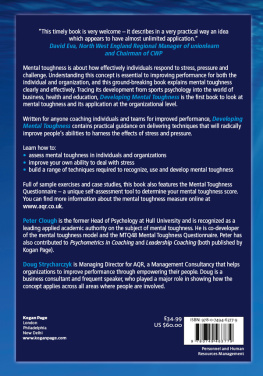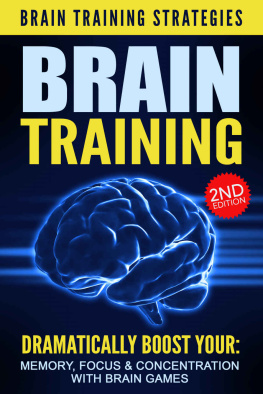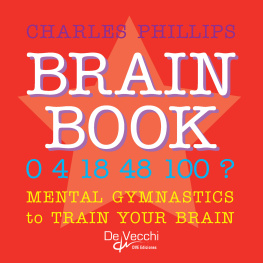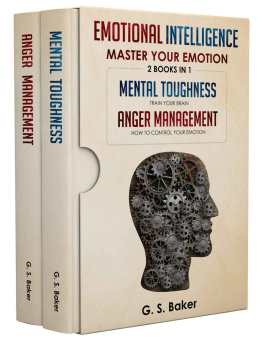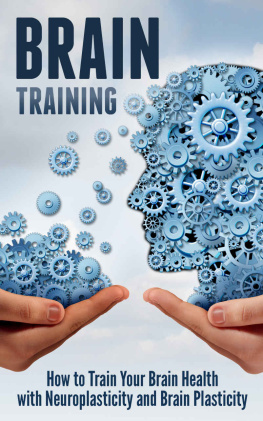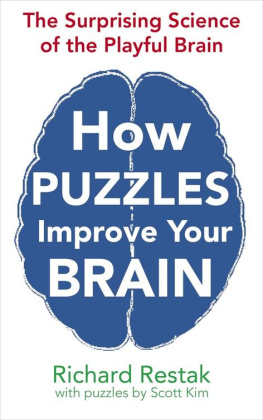TrainYour Brain: Mental Toughness Training For Winning In Life Now!
ImprovingCognitive Skills without Overworking the Brain
By:Jason Scotts
Tableof Contents
Publishers Notes
Disclaimer
This publicationis intended to provide helpful and informative material. It is not intended todiagnose, treat, cure, or prevent any health problem or condition, nor isintended to replace the advice of a physician. No action should be taken solelyon the contents of this book. Always consult your physician or qualifiedhealth-care professional on any matters regarding your health and beforeadopting any suggestions in this book or drawing inferences from it.
The author andpublisher specifically disclaim all responsibility for any liability, loss orrisk, personal or otherwise, which is incurred as a consequence, directly orindirectly, from the use or application of any contents of this book.
Any and allproduct names referenced within this book are the trademarks of theirrespective owners. None of these owners have sponsored, authorized, endorsed,or approved this book.
Always read allinformation provided by the manufacturers product labels before using theirproducts. The author and publisher are not responsible for claims made bymanufacturers.
2013
Manufactured inthe United States of America
Dedication
This book isdedicated to my mother Jessica, who has struggled with Alzheimers for years.
Chapter 1- How Does the Human Brain Work To Retain Memories?
The human brain is a complexorganism. Essentially, it is the power supply that directs your every function,such as breathing, sleeping, moving, and thinking. To this date, scientistsagree that there's nothing more powerful than the human brain. It oversteps themost advanced supercomputer; it's far more superior than the strongest battery;and it has more available space than the best memory chips on the market. Thisarticle focuses on how the brain is able to retain more memory than anytechnological device.

How Does Your Brain Know When toKeep Something and When Not To?
According to an interview AprilHolladay of WonderQuest held with USAToday, when you experience the world withyour five senses (sight, sound, touch, smell, and taste), your brain istriggered to catalog whatever it is that you are experiencing. Interestingly,your brain knows to keep what your senses pick up, whether or not itconsciously drew your attention. Your brain translates and catalogs cognitiveideas the same way because they are configured and extracted with sensualexperiences. Even when you're not aware of your surroundings, your brain is.And it's working nonstop to store everything.
Where Does Your Brain Store YourMemory?
Everything that you've everexperienced is categorized and placed by the brain into one of three locations:your sensory memory, your short term memory, or your long term memory.Depending on how subtle or predominant the experience was is how the memory'slocation is determined. Later, when you make an effort to retrieve some of yourmemory, such as where you put the remote or how to figure surface tension, youcall upon the hippocampus, a region in the brain that is responsible for theretrieval of such information.
How Does Sensory Memory Work?
Sensory memory can be accredited toone's sense of direction. For example, say you've recently moved into a newhome in the middle of the woods. You check the fridge and you realize thatyou're out of milk, so you decide to make a trip to the local dairy store.This'll be the first time that you've driven into town from the new home, andyou're feeling a bit nervous as you are not sure whether you know the way ornot. After a couple wrong turns, you notice that you've seen that fallen tree before;and that creek; and that hill. Now that you know where you've been, you knowwhere to go. That was the work of your sensory memory.
Sensory memory is located throughoutareas of the cortex and is only held onto for a few moments. When those momentsare up, the information will be divided into where your brain thinks it shouldgo. Some may move into short term memory, and the rest may go into long termstorage for later recollection.
How Does Short Term Memory Work?
Short term memory is also known asprimary or active memory. Anything that you are currently thinking orexperiencing is found here. Similarly, psychologists refer to this type ofmemory as your conscience. It will always stem directly from your sensorymemory, as short term memory is based on past experiences. Information does notstay here for very long. Typically, it has the capability of lasting one tofive minutes before moving on to the final stage of memory development.
You use short term memory to recallthe number of the doctor's office that you just looked up; you use it to get anA+ on the geography quiz that you studied for last minute; and you use it topull the vehicle over when the sirens of the police car behind you are blaring.Don't think of short term storage as a warehouse; rather, think of it as asmall cardboard box to use to move your office utensils to a different room. Itcan usually hold around six to eight pieces of information at a time beforeneeding to filter it through.
How Does Long Term Memory Work?
Long term memory refers to anindividual's preconscious memory. Your preconscious memory consists ofinformation that "is not currently being thought about but can easily beaccessed with the right memory trigger." Patching the gap between longterm and short term memory, this information is able to be brought up atanytime. Long term memory is what helps us recall the name of a distant cousin,or remember how to change a tire. The brain can store information here for upto several decades. Before any recollection can take place, the initial memorymust go through three different processes: encoding, storage, and retrieval.
First your brain breaks down theinformation to establish meaning; later adding context such as environment andstage of life. This is known as encoding. Second, as the memory is being store,it is attach to other related memories to aid in the later retrieval process.This is known as storage. Lastly, when you are working to recall theinformation, the last process quickly triggers mechanisms to retrieve theconcept, followed by trace pointers and codes. Think of it as a large filecabinet with effective labels. If you didn't have the labels, it could take youhours to find what you're looking for. Your brain is great at connectingpointers to other pointers in order to help you recover something. This isknown as retrieval.
The human brain is always at work,whether you know it or not. It is constantly filing and categorizing in orderto make people's live easier. Without the human brain to do this, you wouldn'tbe able to make it through a given day. You brain knows to keep everything thatyou experience (both consciously, and subconsciously). It knows when to helpyou with directions (sensory memory), when to help you on a quiz or test (shortterm memory), and because of its masterful file system, when to help you recalla name, date, or address (long term memory).
Chapter 2- What Does It Mean ToTrain Your Brain?
There are two different kinds oftraining that is beneficial to the human brain. These types of training arephysical training and mental conditioning. Physical training involves normaltypes of exercise such as running and weight lifting. Mental conditioning caninvolve memory exercises, emotional training, focus training, and any number ofother methods to improve brain capacity.
Next page



